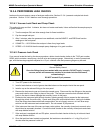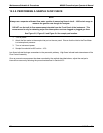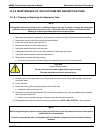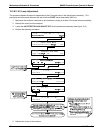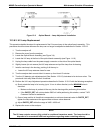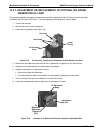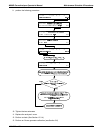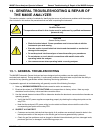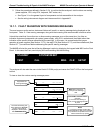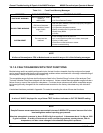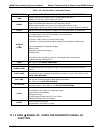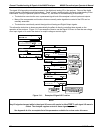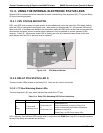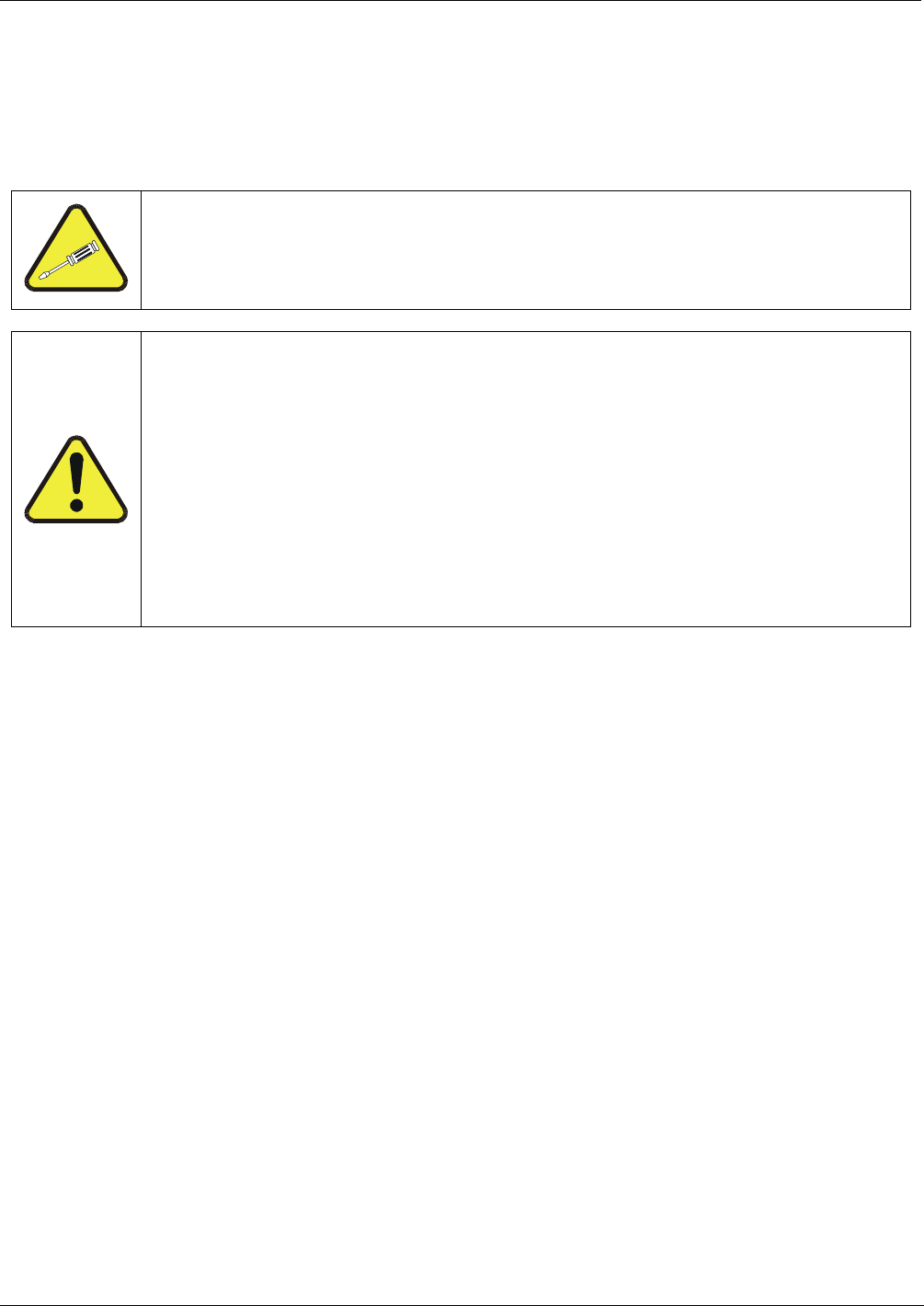
M400E Ozone Analyzer Operator’s Manual General Troubleshooting & Repair of the M400E Analyzer
13. GENERAL TROUBLESHOOTING & REPAIR OF
THE M400E ANALYZER
This section contains a variety of methods for identifying the source of performance problems with the analyzer.
Also included in this section are procedures that are used in repairing the instrument.
NOTE
Qualified Personnel
The operations outlined in this chapter must be performed by qualified maintenance
personnel only.
CAUTION
General Safety Hazard
Risk of electrical shock. Some operations need to be carried out with the
instrument open and running.
Exercise caution to avoid electrical shocks and electrostatic or mechanical
damage to the analyzer.
Do not drop tools into the analyzer or leave those after your procedures.
Do not shorten or touch electric connections with metallic tools while
operating inside the analyzer.
Use common sense when operating inside a running analyzer.
13.1. GENERAL TROUBLESHOOTING
The M400E Photometric Ozone Analyzer has been designed so that problems can be rapidly detected,
evaluated and repaired. During operation, it continuously performs diagnostic tests and provides the ability to
evaluate its key operating parameters without disturbing monitoring operations.
A systematic approach to troubleshooting will generally consist of the following five steps:
1. Note any
WARNING MESSAGES and take corrective action as necessary.
2. Examine the values of all
TEST FUNCTIONS and compare them to factory values. Note any major
deviations from the factory values and take corrective action.
3. Use the internal electronic status LEDs to determine whether the electronic communication channels are
operating properly.
Verify that the DC power supplies are operating properly by checking the voltage test points on the
relay PCA.
Note that the analyzer’s DC power wiring is color-coded and these colors match the color of the
corresponding test points on the relay PCA.
4. SUSPECT A LEAK FIRST!
Customer service data indicate that the majority of all problems are eventually traced to leaks in the
internal pneumatics of the analyzer or the diluent gas and source gases delivery systems.
Check for gas flow problems such as clogged or blocked internal/external gas lines, damaged seals,
punctured gas lines, a damaged / malfunctioning pumps, etc.
04315 Rev. C1 233



